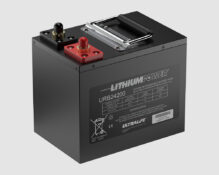A cohort of US battery companies will collaborate with the U.S. Department of Energy’s Argonne National Laboratory and The University of Toledo (UToledo) to improve lead-battery cycling efficiency.
The new two-year research collaboration is focused on improving the performance of advanced lead batteries, which includes work to identify methods to extend their cycle life.
The project will explore lignosulfonates use on a lead battery’s negative plates to maintain the optimum flow of energy from the battery.
The research team will conduct an atomic level examination of organic materials (known as expanders) to extend the life of lead batteries by improving their cycling efficiency.
The project will be led by Argonne’s Material Science Division in collaboration with Dr. Cora Lind-Kovacs, professor in the UToledo Department of Chemistry and Biochemistry.
Joining Argonne and UToledo are: Crown Battery; Clarios; EnerSys; East Penn Manufacturing; and Ecobat.
The aim is to develop longer life batteries to assist the US’ transition to an electric and decarbonised future as part of president Joe Biden’s February Executive Order for the US to assert global leadership with home-grown technology.
Lind-Kovacs said: “We are excited to collaborate with Argonne National Laboratory and the American Battery Research Group to investigate the atomic level mechanism of how expander molecules interact with the different lead species present in batteries.
“This is a great opportunity to use our expertise in materials chemistry at UToledo to work closely with several companies to help address a relevant industrial problem.”
This cooperative research and development agreement (CRADA) marks the second major collaborative research project between the lead battery industry and Argonne.
The first research program, identified several critical battery additives for intensive research, including the lignosulfonates under investigation here.












